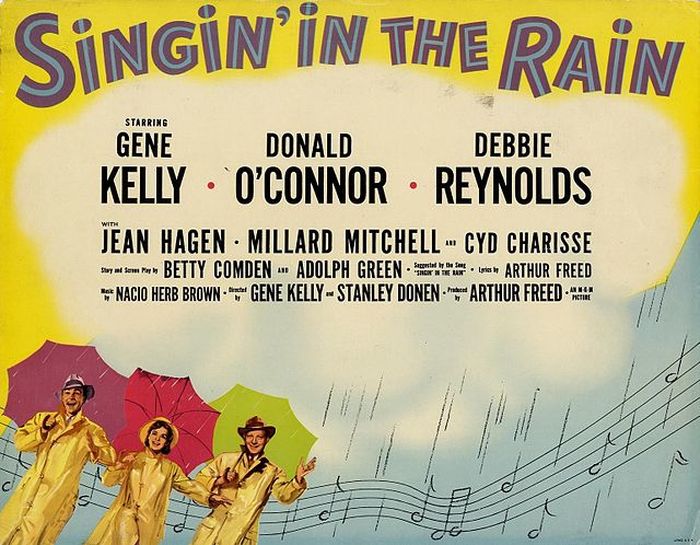A day at Cambridge Film Festival’s industry talks
Gina Stock reflects on the Industry Day at this year’s Cambridge Film Festival

Sitting at the Cambridge Film Festival Industry Day as someone trying to get their foot in the door in the “industry” was enlightening, depressing and surreal all at once. The day is intended to provide networking and information opportunities, and I certainly feel more events and days such as this are needed for aspiring creatives, as depressingly pessimistic as they are.
The day started with a ‘state of the industry’ panel, hosted by Amon Warmann, a film critic, and attended by three other critics, filmmakers and academics, Billie Melissa Rogan, Hugo Emmerzael and Dr Sarah Gibson Yates. The panel was first asked to summarise the current industry in one word, of which I thought ‘necessary,’ ‘complicated’ ‘critical’ and ‘shifting’ aptly reflected my own attitudes to the creative industry at the cusp of a career. The panel went on to discuss the benefits and indeed challenges of the increasing use of AI in film; Sarah picked up on the positive potential for AI in communications, while others pointed out that AI screenwriting and editing can remove empathetic and authentic narratives.
“‘necessary,’ ‘complicated’ ‘critical’ and ‘shifting’ aptly reflected my own attitudes to the creative industry at the cusp of a career”
The panel moved on to talk about the shifting dynamics of streaming services. My perception, perhaps myopically, has always been that the increase of streaming services can only increase the number of industry jobs, funding and diversity of stories being told. However the panel were quick to point out the diversity of streaming services actually makes cinema and TV inaccessible, as the subscription bills rack up, fewer people can afford multiple subscriptions. Streaming services are also shortening the cinema circuit, as films will end up on Netflix a couple of months after release, rather than an extended period in the cinema, which throws up questions of the intended viewership experience, and whether laying on your bed watching something on a laptop is the same as a surround-sound cinema. It was also suggested that streaming services, as profit-driven entities, end up twisting and changing filmmaker’s ideas and scriptwriter’s narratives to cater to their audience; for example, Netflix may push a story to be more dramatic, more engaging, and have a typical villain-hero dynamic, rather than allowing an authentic or experimental exploration of a topic. This leads filmmakers to turn down millions of dollars in the name of artistic integrity, which ultimately leads to a smaller reach for the final product. Perhaps the streaming service’s profit motivations are killing the art of filmmaking.
Finally, the panel shared their advice for the budding audience, which predictably centred around making connections, asking for favours, and ensuring you’re aware of the nepotistic structure this industry rests on. Billie Melissa advised that we take risks, as Hollywood (by nature) is not doing so.
“‘keep your delusion on 100.’ ”
The rest of the day centred around some wonderful screenings of BFI-supported short films, my favourite of which was Longing, directed by Courteney Tan, which followed the brief story of two women meeting, falling in love and parting all within a day. The final event of the day was a Q&A with Nathan Byron, screenwriter and actor, who was refreshingly vibrant and positive about the industry. He talked about going from acting, to writing for TV, to writing for his first feature film, all with a focus on underrepresented black voices in UK cinema. I wrote down a particular quote which will follow me, which was ‘keep your delusion on 100.’ His charisma was radiant and he had the audience relaxed and curious for his advice. After a depressing state of the industry panel who essentially concluded that capitalism ruins art, Nathan had me convinced that there was hope, and that one could scrape through and make a living creating art that you’re passionate about.
This was the first ‘Industry Day’ I’ve attended and I implore all aspiring creatives to do so next year. It was both illuminating and disheartening, informative and realistic, and has me grounded and hopeful just a little bit more than I was. I remember thinking I’ve made a difficult, but necessary choice, to get into this industry, and I am determined to see it pay off.
 News / Caius mourns its tree-mendous loss23 December 2025
News / Caius mourns its tree-mendous loss23 December 2025 News / Clare Hall spent over £500k opposing busway 24 December 2025
News / Clare Hall spent over £500k opposing busway 24 December 2025 Comment / Yes, I’m brown – but I have more important things to say22 December 2025
Comment / Yes, I’m brown – but I have more important things to say22 December 2025 Comment / The ‘class’ of Cambridge24 December 2025
Comment / The ‘class’ of Cambridge24 December 2025 Interviews / Politics, your own way: Tilly Middlehurst on speaking out21 December 2025
Interviews / Politics, your own way: Tilly Middlehurst on speaking out21 December 2025








